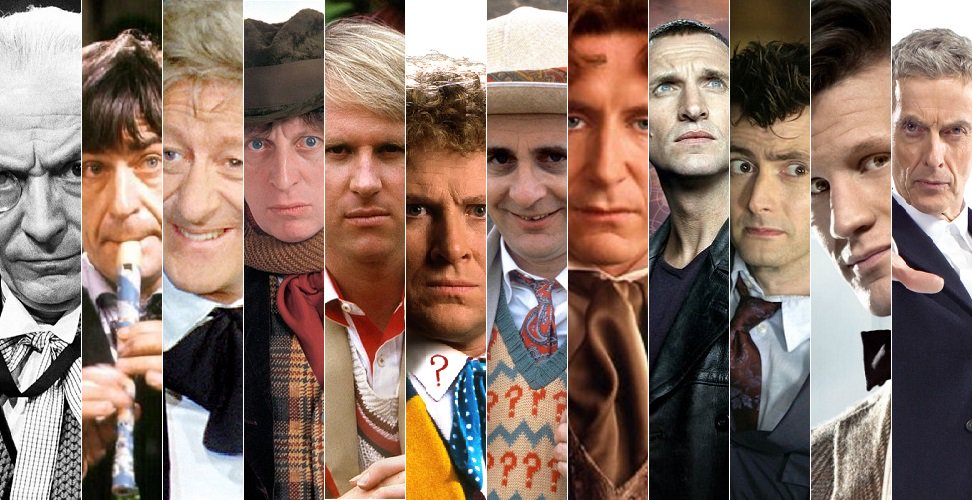The enduring gay appeal of Doctor Who
By Will Stroude

1989 was a strange year for me. I bought my first flat, I prepared for my first shift on a national daily newspaper – while editing a local one – and I wanted to declare war on the BBC.
For more than 20 years my Saturday evenings had had a focal point. Doctor Who. And then, having messed things up by moving it around the schedules, nasty Auntie – citing falling ratings – axed it altogether. To arms… death to the Director General!
You have probably realised by now that I was a fan – and still am. But it never occurred to me that it was also a gay thing. Possibly that was because, certainly in those early days of the late ’60s and early ’70s, while a lot of fans were hiding behind the sofa, I was deep, deep in the closet.
But Doctor Who appeals to gay men on many levels. It was camp and cosy: arch enemy The Master could have been one of those villains who tied pretty girls to the train tracks and twiddled their large moustaches, but was never going to win. The hero never seemed to age – or, if he did, he changed his appearance and started again. He was always in danger but went unharmed; escapism at its greatest.
But there was more to it. The Doctor visited hundreds of worlds and met the most diverse creatures imaginable and, with the odd exception of Nazis (represented by the Daleks, of course), he never showed hatred or prejudice. He was never a bully and stood up for the persecuted and oppressed. He would befriend anyone.
In fact, when sent to Skaro to wipe the Daleks from history, in the classic six-part story ‘Genesis of the Daleks’ (possibly the series’ high point until then and with certainly the most popular of the early Doctors, Tom Baker, in the hot seat), he can’t bring himself to commit genocide and opts just to set their development back.

On the flip side, many of his mortal enemies wanted everyone to be the same: no one took this more literally than the butch Cyberman; they pretty much wanted to turn you straight, wanted you to conform to the “norm.”
Then there were the companions. In the early days, they marvelled at the Doctor and his Tardis. They learnt to be better people by spending time with the centuries-old Time Lord.
In the reboot, the Doctor learns from them. Rose Tyler shows the angry, almost depressed Christopher Eccleston – who, when we first meet him, had been fighting in the Time War and lost pretty much everything – to be happy and fun again, almost literally: by turning him into David Tennant.

Other companions included strong women, campy men and even fellow Time Lords. But I was in love with Adric. In his sweet little uniform, he was only in the show for a couple of years, but, unlike any traveller before him, Matthew Waterhouse was close to my age and was constantly being mothered by his female co-companions. What a shock when *spoiler alert!* they killed him off. Years later when Matthew came out as gay, my overriding emotion was surprise. TV didn’t do gay!
When the news broke that Doctor Who was returning, you could hear me yelling with joy half way down Camden market. I rang my ex – another completely obsessed fan, who was too young to remember William Hartnell or Patrick Troughton but who had watched every episode available on VHS or DVD. He didn’t believe me at first.
Then, when Chris Ecc. and Billie Piper were announced as the first occupants of the updated Tardis, we had long discussions about whether it would work. We couldn’t wait to see what spin Russell T Davies was going to put on it. He introduced gay characters and didn’t have them killed off. Indeed, he made them some of the Doctor’s most valiant and loyal devotees.
Storylines that wouldn’t have been deemed unacceptable in the early days were suddenly possible. Our gay link would go beyond multi-coloured jackets, leather uniforms and make-up applied by the shovel load. We would have multi-sexual Jack Harkness and Madame Vastra and Jenny, we would have male characters hugging each other and even – shock – kissing.
Legend has it that every fan has their “own Doctor” – not necessarily their favourite, but the one they grew up with. Mine should be Patrick Troughton but when you can just step inside a police phone box and change all the rules, how is a boy supposed to decide?
Listen to the full interview with Paul O’Grady in episode two of ‘Attitude Heroes’ – available to download free from iTunes or other podcast platforms now.
Attitude Heroes is produced by Wisebuddah and sponsored by the GREAT Britain campaign, which welcomes the world to visit, do business, invest and study in the UK.
Words by Hugh Kaye
More stories:
‘RuPaul’s Drag Race’: Who is the 14th queen?
Amber Heard urges closeted gay actors to come out
